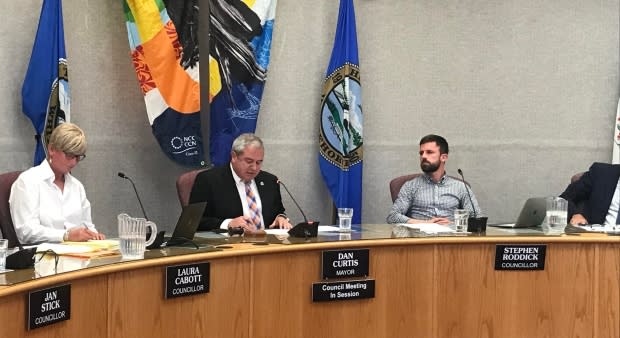OPINION | Shutting Whitehorse citizens out of municipal process troubling idea
City of Whitehorse councillors gathered last Monday to consider the innocuous sounding Council and Administration Roundtable Policy (CAR). This three-letter policy, like most small decisions, was actually about a much larger one; in this case, the sort of municipal transparency that is at the heart of a truly democratic society.
If voted in, the CAR policy would have permitted council to make some meetings with city administration closed to the public and media. While no conclusion was reached on Monday, the debate itself reveals deeper problems in the culture of municipal government transparency.
The rationale to adopt the policy is that the current one is somehow out-of-step with the Municipal Act, and closed meetings would allow councillors the freedom to say things and ask questions without feeling pressured by the public — which, as resident Marianne Darragh pointed out while voicing her concerns before the debate, is too bad, because speaking in public is very much their job.
Council meetings alternate between standing committee meetings — where information is given and questions asked — and regular council meetings — where decisions are made — but a host of informal meetings take place before this happens.
As Coun. Samson Hartland explained, it is during those meetings, which the CAR policy sought to make private, that "council is sufficiently briefed on complex issues so that informed decisions can be made… in anticipation of eventual decision making."

Essentially, the policy would have given citizens the right to the edited and abridged version of their civic story, while making the remainder of the novel available to city government only.
Ex-councillor Mike Gladish, appearing as a delegate to speak against it, referred to the policy as arousing "the suspicion that the wool is being pulled over our eyes."
Ultimately, it was left undecided, and sent back to staff for "further review."
That council and city staff would consider shutting out citizens from any portion of their municipal process is troubling — especially as the city is exempt from the Access To Information and Protection of Privacy Act (ATIPP), which applies to other levels of government and helps to ensure full transparency and government responsibility.
If ATIPP were applicable at city council, one could at least request minutes, documents and emails related to these meetings.
Continuing to keep the city exempt from ATIPP means an entire portion of the municipal process disappears from public view — a portion that involves the conversations and questions that go on in the background of larger decisions which involve you, your city and your tax dollars.

Ostensibly, the city does not have the resources or expertise to deal with ATIPP requests; during the meeting Mayor Dan Curtis referred to it as "a beast" to deal with, which seems a flimsy excuse.
The city is engaged in several complex, multi-million dollar projects, spending both local, territorial and national dollars; if they can handle these projects, then ATIPP — and the increased transparency it would bring — should not be so onerous.
"To me, what's more invaluable than getting the information is protecting the information," Curtis said of the city's exemption from ATIPPs during the debate over the CAR policy, pointing out that the city holds "significant, valuable information [from] many citizens" which might not be "safe-guarded" should they come under ATIPP.
This appears to be a fundamental misunderstanding of what ATIPP is designed to do, which is to protect private citizen information while increasing government accountability and transparency. That's literally what it's for.
This is not to say council is attempting to pull a fast one; it's the same sort of cultural dissonance a backyard mechanic encounters with a modern car.
Previously, one could open the hood and see what was happening in their engine; many modern machines now intentionally cover all or part of those inner workings, on the grounds that the average person is not specialized enough — or interested enough — to make those repairs.
This means a loss of control, and responsibility for, one's own literal "CAR."
Citizens should be suspicious of any kind of policy, or leadership, that attempts to shield any mechanism of government from their view, even for a moment.
This column is part of CBC's Opinion section. For more information about this section, please read this editor's blog and our FAQ.


